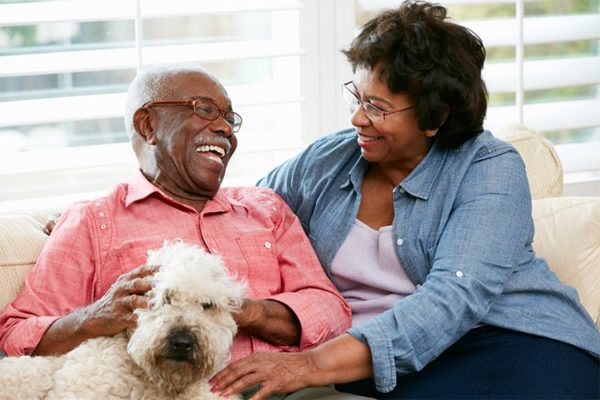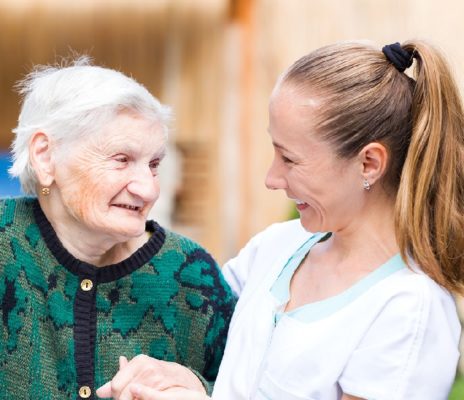Seniors with Alzheimer’s or dementia are often highly sensitive to their environment. Creating a soothing place to live helps minimize agitation, reduce challenging behaviors, and improve quality of life.
Helpful tips for caregivers
To decrease agitation and aggression with dementia, caregivers can help their loved ones in the following ways:
- Find a multidisciplinary team of specialists. This may include a psychiatrist to carefully consider the risks and benefits of medications for managing behavior, a geriatrician to optimize your loved one’s medical situations, and an occupational therapist to consider modifications of a person’s living environment and daily routine.
- Go for a walk or on an outing for a change of scenery. Physical activity has additional benefits on mood, memory, and lowering anxiety.
- Add massage and touch therapy, or just provide a calming hand massage.
- Incorporate music into your loved one’s daily routine.
- Notice the first signs of agitation. Nondrug options work best the earlier they are used.
- Get creative: discover what works and try using different senses. Aromatherapy, an activity such as folding (and refolding) laundry, brushing hair, or dancing can all be calming.
- Consult with your physicians. Medications are often prescribed as first-line interventions despite what we know about the effectiveness of non-drug options.
- Educate all the people caring for your loved one on the interventions that work best, and check-in with them about how these approaches are working.




wonderful post, i like it